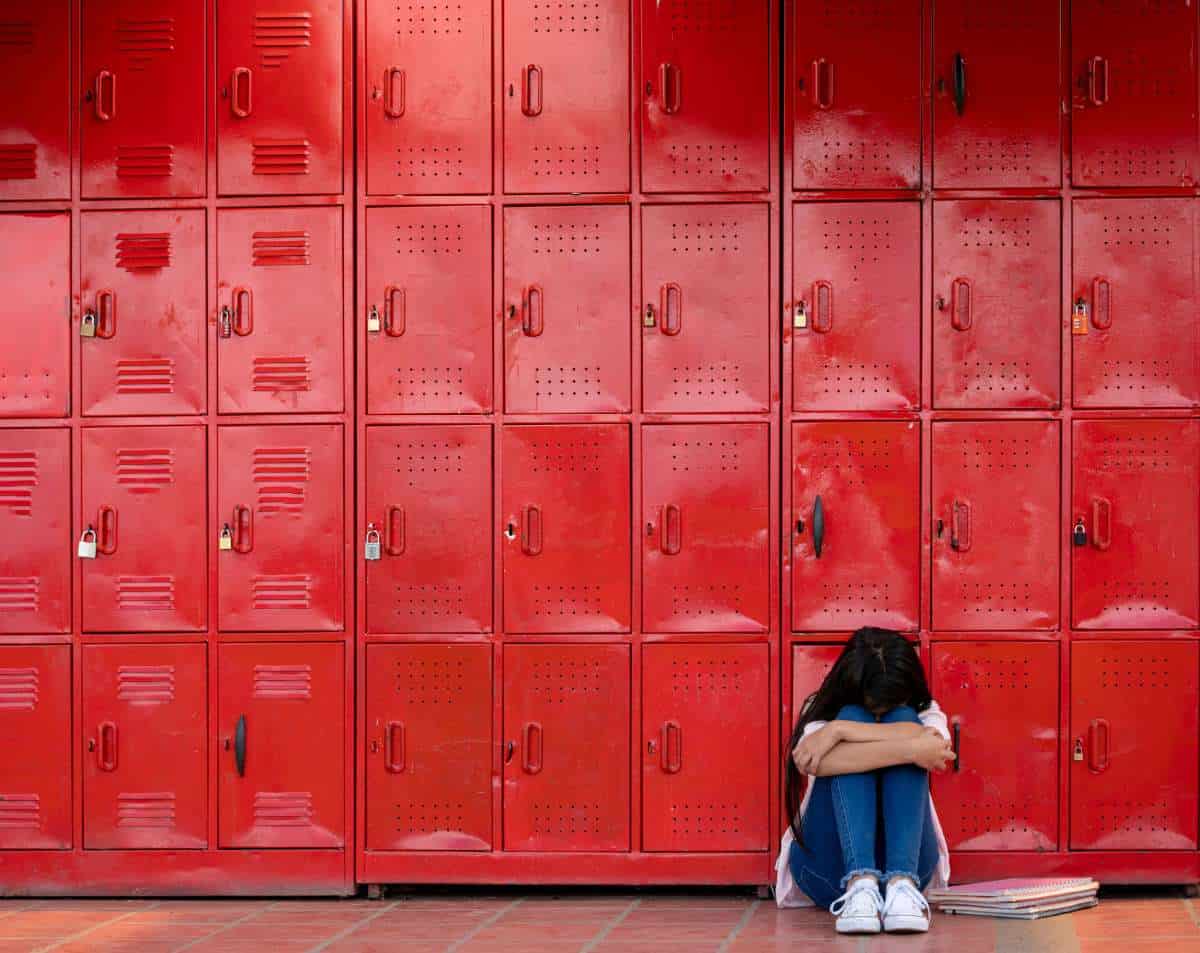Bullying is something we are all familiar with – whether we’ve been victims in the past, or have witnessed bullying happen to others, or have been bullies at times ourselves. Bullying is as old as time, whether on the playground or on the job site. But some instances of bullying are more harmful and nefarious than others. And while some might argue that bullying is “normal” to some degree, it should never be tolerated or laughed off. What might seem harmless in retrospect to some people can become a traumatizing memory to others and create mental health problems. And unfortunately, dealing with bullies isn’t something that everyone knows how to do.
In the digital age, it’s hard to remember you’re dealing with other people, or gauge a person’s reaction to the things you do. There are fewer barriers and boundaries, and the potential for abuse is huge. It’s one thing to hit someone and see them cry. It’s another to create stories online, photoshop fake images or deepfake videos, or even attempt to swat someone – without ever truly being faced with the repercussions of your actions.
If you or someone you know has been a victim of bullying, know that there are right and wrong ways to deal with the situation. Here’s what you shouldn’t do:
- Escalate things into physical violence.
- Bully them back.
- Orchestrate revenge.
- Ignore it, and pretend it never happened.
Here’s what you should do.
1. Talk to Someone
First things first – if you or someone else is dealing with bullies, the first thing you should do is talk to someone you trust. A close friend, a school counselor, your parent – anyone you can. Depending on the circumstances, bullying can be deeply traumatizing. It’s more than just being called dumb names or harassed about a haircut.
Bullying can involve physical harassment and violence, sexual violence, daily persecution, constant online barrages, threats, and even urges to commit suicide. Serious cases of bullying can involve criminal behavior and need to be reported. It’s about more than just looking tough or trying not to let words hurt you. Encouraging or passively allowing bullies to continue victimizing other children and teens can and will foster worse behavior over time.
2. Tell the Adults
Talk to a teacher or a counselor after a bullying incident. Be clear with what happened and the order in which events took place. If it happened at school, show them where. If elsewhere, it helps to have pictures or videos.
If you’re dealing with bullies online, it’s important to document everything – bullies can go back and try to delete comments and pretend they never uploaded certain things if caught. Oftentimes, bullies will also try to utilize anonymity to post cruel things online – even if you don’t know who is behind these posts, it’s important to bring them up with an authoritative figure.
3. Don’t Ignore Bad Feelings
Whether or not you seek the help of an adult, bullying can promote self-loathing and depressive feelings, as well as self-harm.
Victimization is often correlated to suicidal ideation, and bullying is one of the reasons why marginalized groups, such as LGBTQ+ teens, experience suicidal thoughts at a much higher rate than their peers.
If you have been feeling off lately, especially if you’ve contemplated hurting yourself or just don’t feel anything at all, it’s crucial that you tell someone. Don’t keep quiet!
Talk to your school counselor and request a professional therapist or a referral to a medical professional. The mental baggage of bullying can pile up over time, and no matter how resilient someone is, we all have our breaking point – and we all need help in our darkest hours.
4. Don’t Respond to Cyberbullies
The worst thing you can do is engage your bullies directly. It doesn’t always end the way you might want it to, and even if you’ve been preparing for it – learning to protect yourself or fight – escalating bullying into physical violence is neither a safe resolution nor is it a smart one.
A one-on-one can quickly turn into a three-on-one or a four-on-one against you, and you might even be punished for pushing things to a violent end, even if it “felt” justified or if you feel in the right.
It’s good to learn to defend yourself. It’s good to become more confident in your body and your skills and be secure in the knowledge that if you were confronted, you could get out of it unharmed. Building up your self-esteem is a sure way to help fight and deal with bullies – by continuing to improve and better yourself, you continue to prove that your bullies are wrong. But don’t provoke a fight.
With cyberbullying, it’s an even worse idea to engage. There is no way to “win,” and any engagement feeds their need to hurt you and gives them fuel with which to react and humiliate you. Instead, do this:
5. Report Online Bullying
If you are being continuously harassed online, depending on the platform the harassment is occurring on, you can resort to reporting posts and messages. Platforms like Twitter and Facebook must review these posts and will likely delete them if they are explicit forms of harassment or calls to violence.
Some forms of bullying and online harassment can actually escalate to illegal levels. It’s important to document these instances before social media platforms take them down.
Evidence of illegal cyberbullying can be used to help fight criminal actions, such as threats of physical violence, invasions of privacy (taking videos or pictures of someone without their permission or when they don’t want to be recorded), hate crimes (racism, homophobia, xenophobic messages), and child pornography (sharing illicit pictures and unwanted nude images).
6. Take Screenshots and Keep Records
Remember! Screenshots, online archives (archive.org), emails, and text messages are all important forms of evidence. But don’t just let them continue to send you messages or post hateful comments. Once you’ve documented what has already been posted or sent, block them immediately.
7. If Someone Else Is Being Bullied
There are ways to interfere and do good without being a bystander. First things first, interfere. Whether it’s verbally or physically, getting between people being bullied and the bullies can help stop an event and keep things from escalating. Don’t start a fight.
Separate everyone involved, then go talk to an adult. It might be tempting to intervene and get aggressive against the bully, but this can often make things worse. It’s best to try and resolve things as peacefully as possible. If someone has been hurt, or if there were weapons involved, get medical help and the police as soon as possible.
What If I’ve Been a Bully?
There is never a good reason to bully someone. Even if we might feel it’s playful to joke about someone’s appearance or make jokes in bad taste while young and impressionable, it’s important to learn from your mistakes when you’ve been called out and to avoid repeating such behavior rather than becoming aggressive or defensive.
If you’ve bullied other people before, no matter how long ago it was, it’s important to apologize and own up to what you did. Even if years have gone by, chances are that they might still remember what happened. They might not forgive you. But it’s important, nonetheless.
No one is born perfect, and some people make plenty more mistakes than others growing up. It’s easy to blame one person or another in retrospect, but bullying and dealing with bullies is often more complicated than it seems on the surface. Don’t let that keep you from seeking to do the right thing, or respond the right way, whether you’ve been bullied or have bullied others before.








